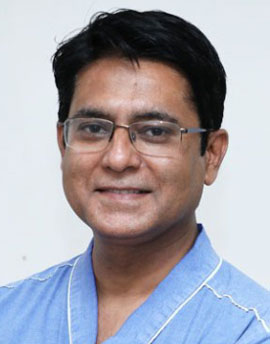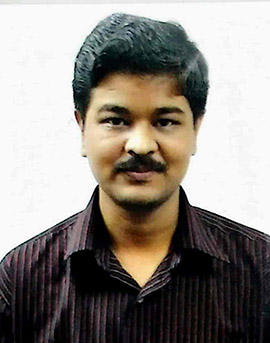Specialities : Department of Pediatrics Surgery
Division of Paediatric Surgery covers a wide area of work namely
-
General Paediatric Surgery
- This includes problems such as hernias, uro-genital lesions, lumps and bumps, head and neck lesions, haemangioma, lymphangioma, cystic hygroma and perianal conditions.
-
Neonatal Surgery
- Expectant mothers with babies with congenital anomalies are seen together with the obstetrician doing the ultrasound assessments and their management planned. Gastro-intestinal, abdominal wall defects, diaphragmatic hernias, lung cysts and malformations, teratomas (sacroccygeal, mediastinal, pharyngeal and cervical) and renal anomalies are among conditions diagnosed and managed.
-
Urology
- Paediatric urology makes up about 30% of the work of the division. Nephrectomies, nephro-ureterectomies and partial nephrectomies are carried out. Pyeloplasties, hypospadias repair, undescended testis, neurogenic bladder and vesico-ureteric reflux are common urologic conditions seen. A complete set of cystoscopes is available from newborn till adolescent age.
-
Hepato-biliary and Gastrointestinal Surgery
- Biliary atresia and choledochal cyst are common hepato-biliary conditions seen in the division. Liver tumours, though uncommon, are managed together with Paediatric oncologist. Pancreatic illnesses such as acute and chronic pancreatitis and pancreatic tumours are also treated. All small and large bowel atresias, obstructions and intussusceptions are managed. Upper GI endoscopy through flexible OGDscope with retrieval of foreign bodies, esophageal dilatation is also done.
-
Thoracic Surgery
- All extra cardiac thoracic lesions in the neonates are followed up from antenatal diagnosis to post-natal surgery by the division. The commonest of the conditions managed are empyema, lung cyst, cystic adenomatoid malformation of the lungs, pulmonary sequestration and congenital lobar emphysema. Intra thoracic tumours, lung bulae with recurrent pneumothorax, esophageal atresia and fistula are also dealt with.
-
Surgical Oncology
- Wilms’ tumour, neuroblastoma, hepatoblastoma, sacrococcygeal and other teratomas and mediastinal tumours are managed jointly with Medical Paediatric Oncology at Tata Memorial Hospital.
-
Minimally invasive surgeries
- Both diagnostic & therapeutic laparoscopies and thoracoscopies are performed regularly. In ther last 11 years, 1852 laparoscopic and thoracoscopic procedures have been conducted. The department has recently acquired 3 – D laparoscope, a first in MCGM Hospitals.
- Birth Defect Clinic
The hospital offers a range of surgical services for the treatment of congenital malformations, including:
- Lymphangioma surgery: Lymphangiomas are abnormal growths in the lymphatic system, which can be removed surgically.
- Cleft lip and palate surgery: A common birth defect that affects the mouth and nose, which can be treated with surgical correction.
- Esophageal atresia and tracheoesophageal fistula surgery: Esophageal atresia and tracheoesophageal fistula are rare congenital conditions that affect the esophagus and require surgery to correct.
- Hypertrophic pyloric stenosis surgery: Hypertrophic pyloric stenosis is a condition where the muscle at the bottom of the stomach thickens, causing a blockage, which can be corrected surgically.
- Intestinal atresia surgery: Intestinal atresia is a condition where a portion of the intestine is missing or blocked, which requires surgical correction.
- Necrotizing enterocolitis surgery: Necrotizing enterocolitis is a condition that affects premature infants and requires surgery to remove damaged tissue.
- Meconium plugs surgery: Meconium plugs are a blockage in the intestines, which can be removed surgically.
- Hirschsprung's disease surgery: Hirschsprung's disease is a congenital condition that affects the colon, which requires surgery to remove the affected portion of the colon.
- Anorectal Malformations surgery: Anorectal Malformations surgery:
- Undescended Testes (Cryptorchidism) surgery: Cryptorchidism is a condition where one or both testicles fail to descend into the scrotum and require surgical correction.
- Intestinal malrotation surgery: Intestinal malrotation is a congenital condition where the intestines are not in the correct position, which requires surgery to correct.
Specialist Doctors



